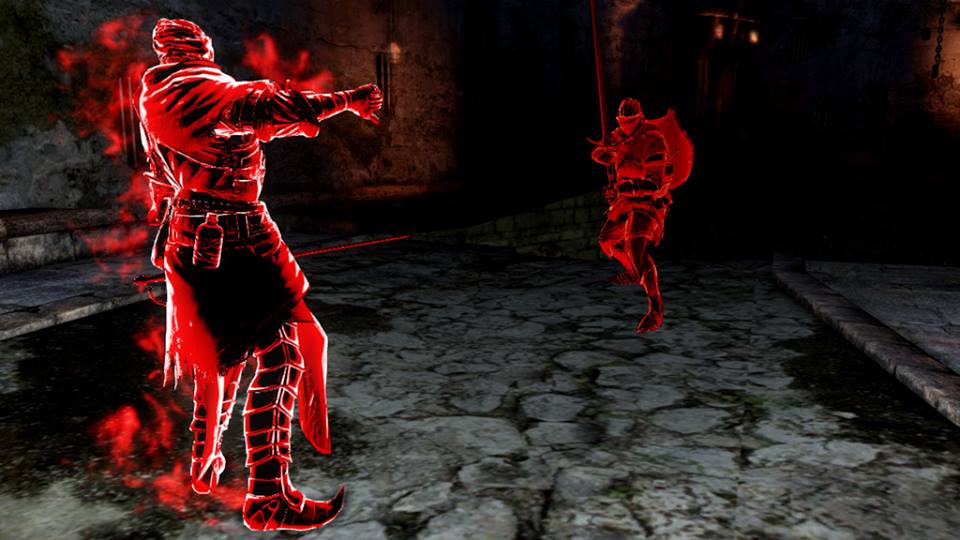Last updated on August 21, 2014
Please Read Part 1 First!
To make this a little clearer, let me make an analogy (if an imperfect one; as you know, all analogies break down somewhere).
Suppose you read a novel. That novel has a particularly icky part in it that you don’t like (say, an extended scene of torture, or maybe rape). Do you just skip over that, because you don’t like it? Books like Native Son by Richard Wright does not respect my personal moral predilections, but that does not mean it isn’t a good novel. Yes, you can stop reading at any time, but skipping stuff? That’s tantamount to missing the point of that whole book, with its gruesome depictions of black-0n-white violence, a possible portent of a future without Thurgood Marshall or Martin Luther King Jr. You may not like it, but it’s important to the overall effect.
Me? Personally, I hate any and all kinds of violence against women, in most media. It makes me cringe, and I get a pretty strong emotional reaction to it when I see it depicted on screen. Call it my own personal “white knight syndrome”; it comes out especially when the woman remains defenseless throughout the ordeal. I also hate any and all kinds of surgery, especially the medieval kind (screw you, Master and Commander!); who in their right mind wants to watch that? Does that mean I deny that it can present something disgusting if necessary in a work of art? No, I don’t. Everyone will see the experience slightly differently, and that makes you human.
Or, what about a movie? Is the director’s cut of Gods and Generals not worth your time, simply because it requires a five hour chunk of time? Imagine going to see the three and a half hour version in theaters – you just gotta sit through the whole thing, or you will miss something. Bathroom breaks (and a family member/friend to fill out plot holes) are practically a necessity. Or the real version of Red Cliff, which is somewhere in the four and a half hour range? I love the film, but my God does that represent a time commitment. How about the Godfather? Lord of the Rings? These movies do not respect the audiences’ time in any way. You can certainly pause the film if you watched it in theaters, but I saw the whole Lord of the Rings in theaters, and there’s no pausing on that front! That doesn’t mean that they aren’t some of my favorite films of all time.

And in both the case of movies and books, do you call the parts you don’t like “poor design”? I would hesitate to say this precisely because they work within the constraints and benefits of their medium, whether in the moment or self-reflection afterwards. Video games represents a unique problem in this regard due to their interactivity; they only continue with you at the helm, and a game without pausing forces you to interact even when you don’t want to interact. That sounds like a pretty compelling mechanic to me when a game doesn’t let me pause; it creates a living, breathing world.
The problem comes in taking a general maxim from the past and applying it to particular situations in the present; the circumstances are no where near the same. If you’re like me, you grew up in the NES/SNES era of video games, and certain rules applied to every product on the market. Video games of the past were primarily single player or local multiplayer experiences on consoles, and thus you could pause at will, or have a gentleman/woman’s agreement on pausing the game during heated, tense moments. Everybody agreed on those rules, except in arcades which encouraged quarter munching and high turnaround rates.
Online gaming has changed that mindset significantly, not only to avoid favoring one player over another (as pausing would most certainly do), but for the purposes of immersion. Pausing a game like the Souls series just wouldn’t make it the same. You can pretty much be invaded just about anywhere if you’re online, and that’s what can make it tense and scary. Even the single player experiences contains AI controlled PvP opponents who crop up just to scare the crap out of you. In fact, I’d wager that Souls games wouldn’t be quite the same without the ever-present risk of invasion. It contributes to the isolated, hostile atmosphere the game’s trying to cultivate. Hidetaka Miyazaki, the game’s director, designed it this way, and the lack of a “pause” (even offline!) works to the game’s benefit. It enhances the experiences. Some super coordinated dudes can dive into their inventory and change equipment on the fly, but you put yourself at a disadvantage during combat by doing so (and possibly die!).

My guess is that Destiny follows the same principle. The main game (not the single player experience, which look more like extended tutorials) takes place in a world of both friends and enemies. New conflicts are supposed to emerge naturally out of differing factions, and the actual enemies placed by Bungie supplement that experience. It’s a natural online extension of multiplayer online battles, except that now you get to choose how it works. Single-player just isn’t a focus here, and to expect it to kowtow to such demands for convenience is petulant. It sacrifices the game’s crafted experience for players demanding convenience (I could say the same thing with the modern state of WoW’s design, but I digress).
As in books, novels, and whatever other media you can imagine, often the creator’s trying to put you in a particular mindset, offensive and inconvenient or no. I wouldn’t treat games any different. Does The Wonderful 101 disrespect my time by forcing me to play in distinct 2 hour blocks to make progress? No, I don’t think so. I can pause, sure, but sometimes you just need to do something else. Those operations are LONG, but Hideki Kamiya wants me to play his game with dedication and consistency; I have lost progress and had to shut my Wii U off due to real life demands, but I feel rewarded playing it anyway. My loss contributes to my next playthrough because I know what I need to know to get through it more efficiently. That how most of Platinum Games’ output functions, and I can’t fault them for that because that element makes the situations much more interesting.
I favor what creates the best game, players be damned. And I know that makes me a sort of elitist, I suppose, but it also creates a far better game when the developer deems it absolutely necessary. I would rather them not favor my demands, but make game they like and mechanics that emphasize how they want me to play, and what they want me to experience. Games are based on mechanics and interactivity; things naturally work differently than other mediums because of that very element, and pausing works right into that realm.
Not being able to pause HAS become a mechanic, whether you like it or not.
